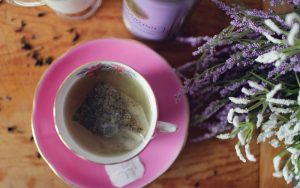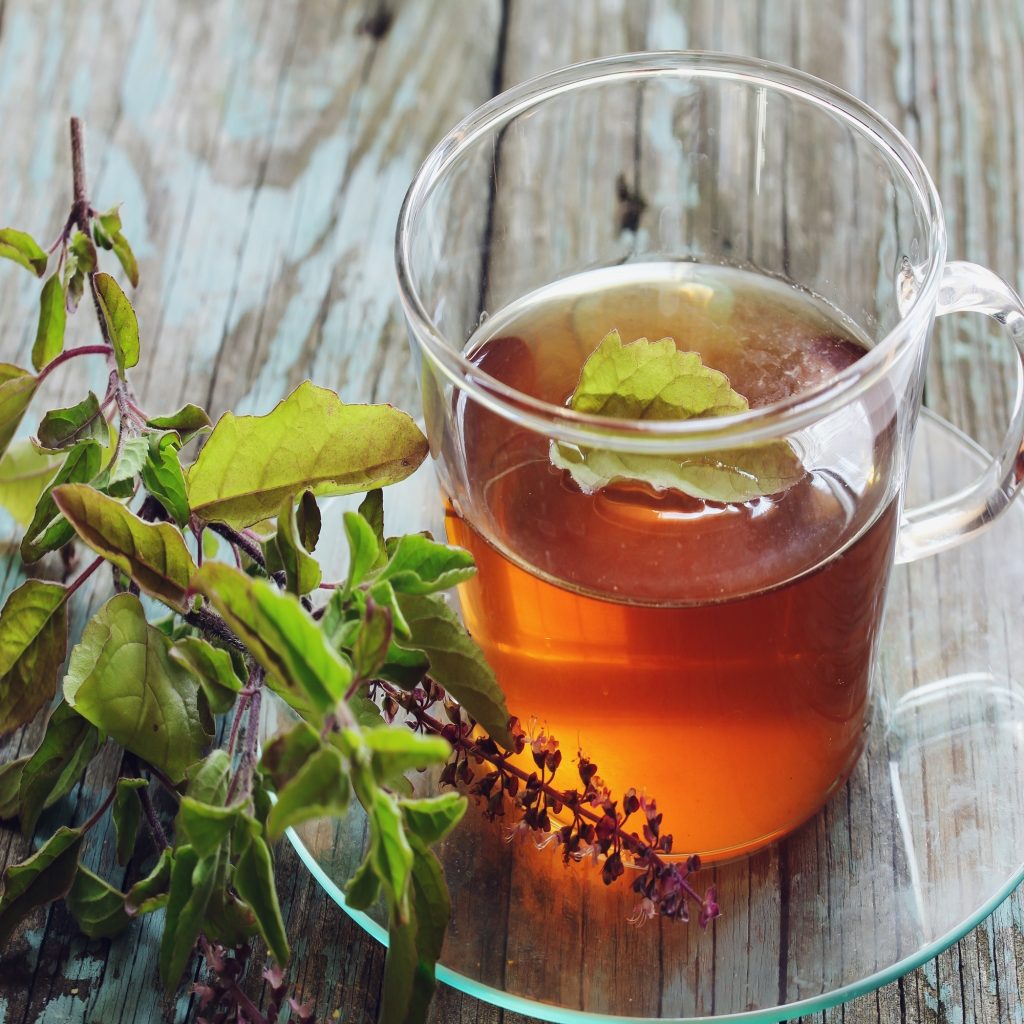
There is nothing more satisfying than capping the night off with a fresh brew of tea after a long day at work. Aside from its relaxing benefits, it’s the perfect drink for when you’re feeling a bit under the weather or just simply want warmth from the cold breeze. So if you’re looking for something new to surprise your tea lover taste buds, tulsi tea is the perfect match for you!
If this is the first time you’re hearing about tulsi tea, don’t worry. We’re here to shed light on the “Queen of Herbs” or holy basil tea. Sip a cup if you feel you’re getting sick. Or pair it with your favorite tea recipes if you feel guilty you had too much coffee. It’s the best drink to boost both your energy and immune system perfect for when you have yet to start the day. This warm and invigorating tea sure is a versatile drink for any time of the day.
What Is Tulsi Tea?
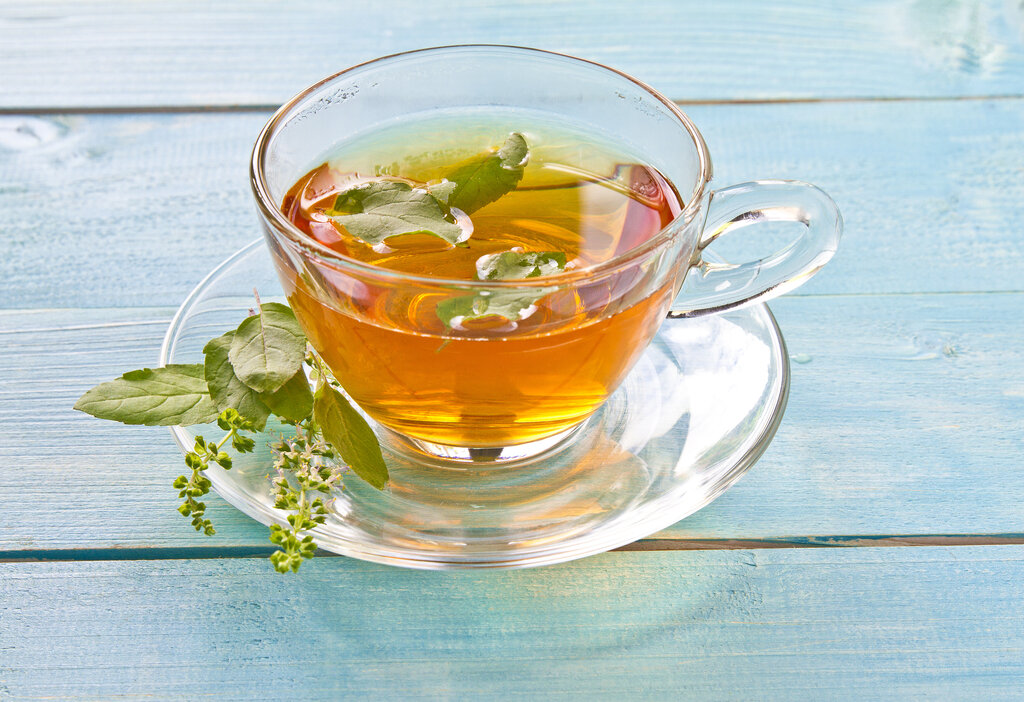
Tulsi tea, or holy basil tea, is a native herbal tea to the country of India. It comes from the Tulsi plant which is part of the mint family along with other culinary herbs such as basil, rosemary, and sage. Tulsi is also tagged as the “Elixir of Life,” because of its spiritual and mental benefits.
The Tulsi plant typically grows in humid and warm climates but it is now cultivated in different countries. Its leaves are then dried for use in herbal tea treatments, especially in Ayurveda. If you’re a stranger to Ayurveda, it is a centuries-old alternative medicine system in India. It is based on the belief that our wellness relies on the balance among our mind, body, and spirit.
It is believed that tulsi tea has been used for Ayurvedic treatments for over 5,000 years because of its rich antioxidant and adaptogenic properties. As an adaptogen, holy basil relieves stress and stress-related conditions like anxiety and depression.
If you’re a little skeptical about its caffeine properties, you don’t have to be since it’s caffeine-free! There’s a bunch of reasons you should add this to your tea chest so continue reading to discover more of its wonders!
7 Amazing Health Benefits of Tulsi Tea

Nowadays it’s easy to debunk myths about herbal drinks and medicines. But tulsi tea has been scientifically proven as an effective anti-inflammatory and anxiety treatment. Not only that but we’ve got a long list of reasons why you should add this to your nightly routine!
Helps to lower blood pressure.
If you’re having trouble keeping your blood pressure at the normal level, drinking tulsi tea might help you to maintain it. The active ingredients in tulsi herbal tea like eugenol (or clove oil) prevent substances that tighten the blood vessels which helps in reducing blood pressure.
Reduces stress.
Feeling a bit antsy or uneasy? You might want to consider drinking holy basil tea. One of the many benefits of holy basil tea is it helps eliminate stress by maintaining stress hormones. This, in turn, delivers a sense of calmness, which might be beneficial for people who have anxiety and depression.
May relieve respiratory illness.
Drinking tulsi tea regularly might be beneficial to fight against respiratory illnesses. It contains properties that help amp up our immunity while relieving both phlegm and cough. It soothes symptoms that arise from asthma, colds, flu, sore throat, and similar respiratory ailments.
May prevent arthritis.
Just like how eugenol prevents tightening blood vessels, this anti-inflammatory chemical also has a great effect on the joints. Its anti-inflammatory effect may also help with preventing our joints from swelling thus relieving joint pains.
Helps maintain sugar level.
Some studies show that Tulsi leaf has anti-diabetes and anti-inflammatory properties that aid with maintaining our sugar level. So if you’re watching your sugar levels and looking for ways to keep it at bay, consider adding a few leaves of Tulsi to your water.
Refines your skin.
Looking for more ways to have that healthy-looking skin? There are also tulsi tea benefits for skin! Drinking it regularly helps with better-looking skin. Tulsi tea is filled with antioxidants and nutrients that are good for the body. Polyphenols found on organic holy basil tea may keep the signs of aging from starting by fending off free radicals.
Aids with infections.
Tulsi tea has properties that combat bacterias and viruses which are responsible for infections. So whether you’re suffering from skin problems like eczema or mouth infections like mouth ulcers, drinking tulsi tea regularly prevents bacterial growth and accelerates wound healing.
Apart from these incredible effects, there are still more that we haven’t mentioned yet! It’s no wonder why tulsi tea has been part of the Ayurveda for years! Now, before we dive into how we make our own elixir, let’s head onto its types.
What Are The Types Of Tulsi Tea?
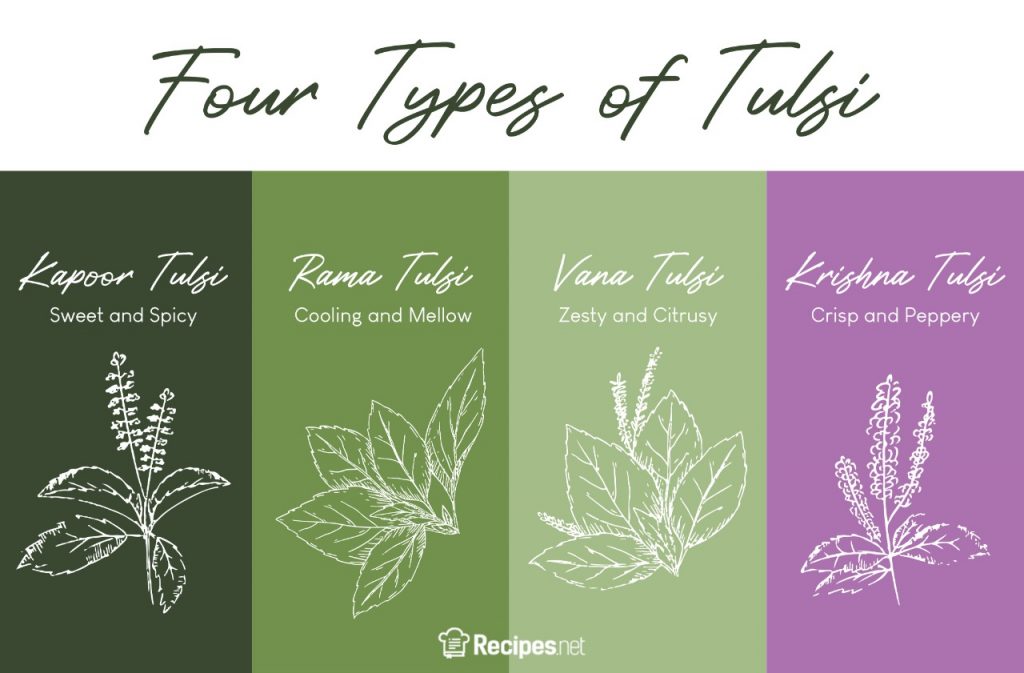
There are four different types of tulsi plants, all of which have varying degrees of clove-like scent. But what sets them apart is their flavor.
Rama Tulsi
Rama Tulsi plant or Green Leaf Tulsi, is green in color and has white flowers which in time turn into purple. A tropical perennial widespread all around India, it has a strong clove-like scent and a pleasant cooling mellow flavor.
You can blend Rama Tulsi to an iced rose tea for a refreshing tulsi sweet rose tea. With its healing properties, you’ll get to enjoy a sweet tea that is both fragrant and healthy. You can also add honey depending on your sugar preference for tulsi sweet rose tea.
Krishna tulsi
Krishna tulsi is also often called Shyama tulsi or Purple Leaf Tulsi because of its purple leaves and flowers. It has a peppery and crisp taste and possibly has the most benefits to our health as it is also used to cure infections. While relatively less common than Rama Tulsi, you can also find it in households and gardens in India.
If you’re looking for a variation to your green tea, add Krishna tulsi to your cup for a simple tulsi green tea. Its piquant notes make a perfect blend to your refreshing green tea adding more depth to your nightly cup. This combination also makes a quick healthy tulsi cleanse tea!
Vana Tulsi
Also known as Tree Basil or Wild Leaf Tulsi, it is a wild type of tulsi that only grows in the mountains and forests of India and Africa. It has a peppery lemon flavor and is known for its antioxidant benefits.
With its strong zesty and slightly lemony taste, you can blend it with the other tulsi types to tone down its taste for mellower flavor. If you’re looking for a more exciting taste, you can also add ginger for a simple Tulsi ginger tea.
Kapoor Tulsi
Also goes by the name Heavy Flowered Tulsi, it is known for its captivatingly sweet and spicy aroma and flavor that repels pesky insects like mosquitoes. Being a temperate plant, it is more commonly found in the US compared to the other types. It can help in the treatment of many illnesses ranging from diarrhea to arthritis. Similar to Rama Tulsi, this tulsi plant has pinkish to purple flowers.
Kapoor Tulsi’s herbal hints and sweet taste makes it ideal to be taken on its own. But if you’re trying to sneak in healthy drinks to your kids’ meals, try mixing in a few tablespoons of honey and ice for an easy iced tea drink.
Regardless of which tulsi plant you choose, their slightly sweet and pleasant flavor makes them easy to drink and mix with any type of tea. Now, if you’re looking for ways to make your own tulsi tea, we’ve got your back!
How To Make Holy Basil Tea And Where To Buy It?
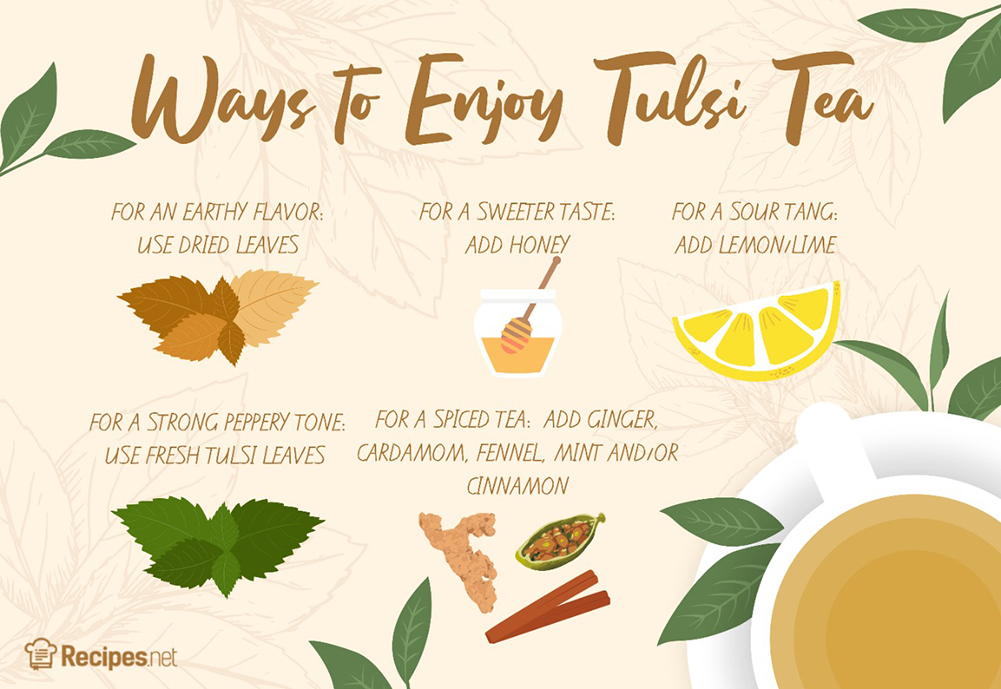
Whether you’re having a cup of tulsi tea for a relaxing evening or as a quick tulsi sleep tea fix, there are still ways to make the best tulsi tea recipe.
Just like how we usually start our teas, boil a cup of clean water. Then pour it over a cup filled with a teaspoon of fresh tulsi leaves or half a teaspoon if you’re using dried tulsi leaves. If you’re looking for a tulsi tea that has an earthy flavor, dried leaves are perfect for you. While if you’re on a search for a strong peppery tone, fresh tulsi leaves are the ones for you.
Cover the cup and let it steep for 5 to 15 minutes or longer depending on your taste. Allowing it to steep for a little longer allows the tulsi herbal tea to have a rich flavor while making the most out of its benefits. If you prefer more variation in flavor, add honey for some sweetness or lemon for a more tart taste. Otherwise, you can even make spiced tea by boil spices like ginger, mint, cardamom, fennel, and cinnamon along with tulsi leaves.
Now, if you’re wondering where to buy tulsi tea, it’s available on your go-to wellness stores online! Yes, it’s not exclusive to Southeast Asia but it is also widespread throughout the US. You can also find it in most natural food stores, and tea sellers.
Wondering how to store the tea leaves? Just like most tea leaves, you can store them in an airtight container in a cool and dry room. Most tulsi tea can last for up to two years depending on your leaves. If you live in a warm humid state, you can also grow your plant as it’s easy to take care of!
What Are The Tulsi Tea Side Effects?
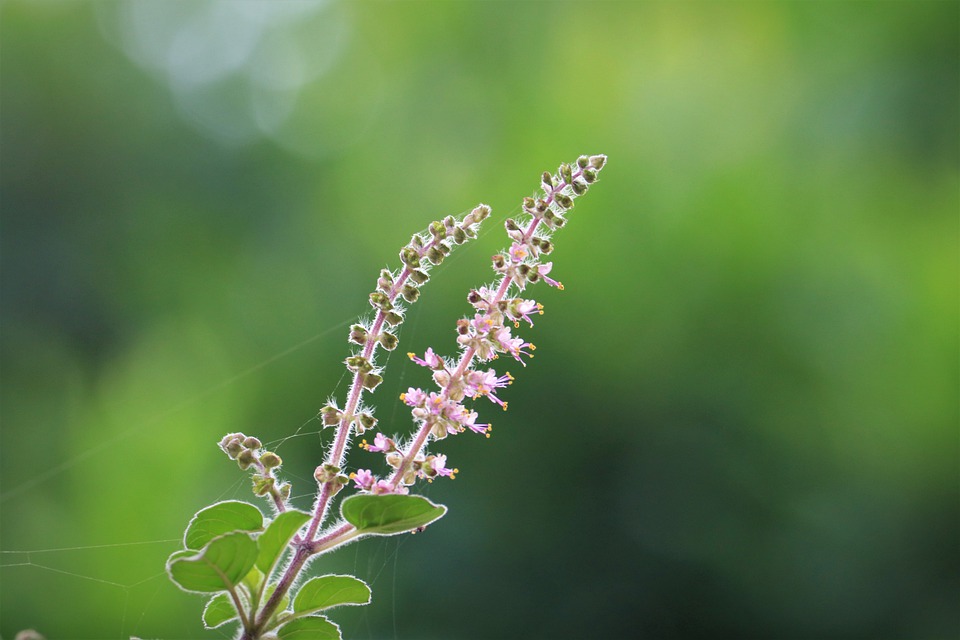
If you’re just starting out with tulsi tea, try gradually adding it to your tea mixture as it might cause nausea or diarrhea. It’s always best to start with precaution when trying new things.
It might not also be safe for couples who are trying to have a baby and especially for pregnant women. Previous studies in animals show that tulsi leaves reduce fertility and may also lead to uterus contractions which may endanger the mother and child. Therefore you should refrain from drinking tulsi tea when you’re pregnant just to be cautious.
Despite being a great help to diabetes, it is still best to consult your doctor when you’re planning to incorporate it into your routine. Tulsi tea might impede the control of your sugar levels if you’re taking antidiabetic medicine.
If you’re also having surgery, it’s best to stay off tulsi tea as it might prevent slow blood clotting. Hence, increasing the possibility of bleeding during surgery.
In Conclusion
Although holy basil tea has lots of benefits, it is still best to be cautious when drinking it regularly. Be sure to make thorough research when trying out new things and not just hop on the health fad blindly.
But if you don’t have these conditions and it’s safe for you to drink tulsi tea, try it out and experience the wonders of the Elixir of Life!







